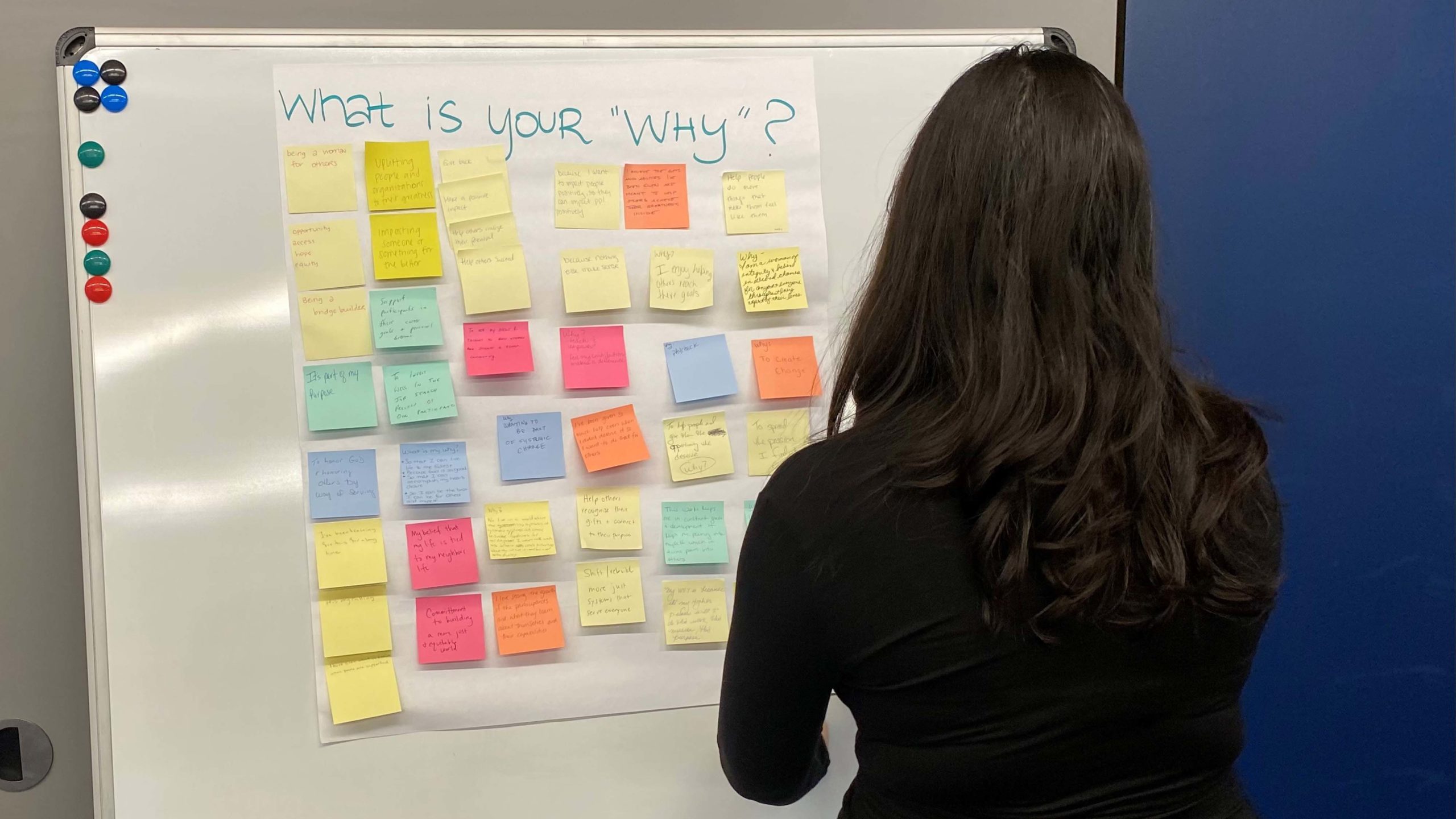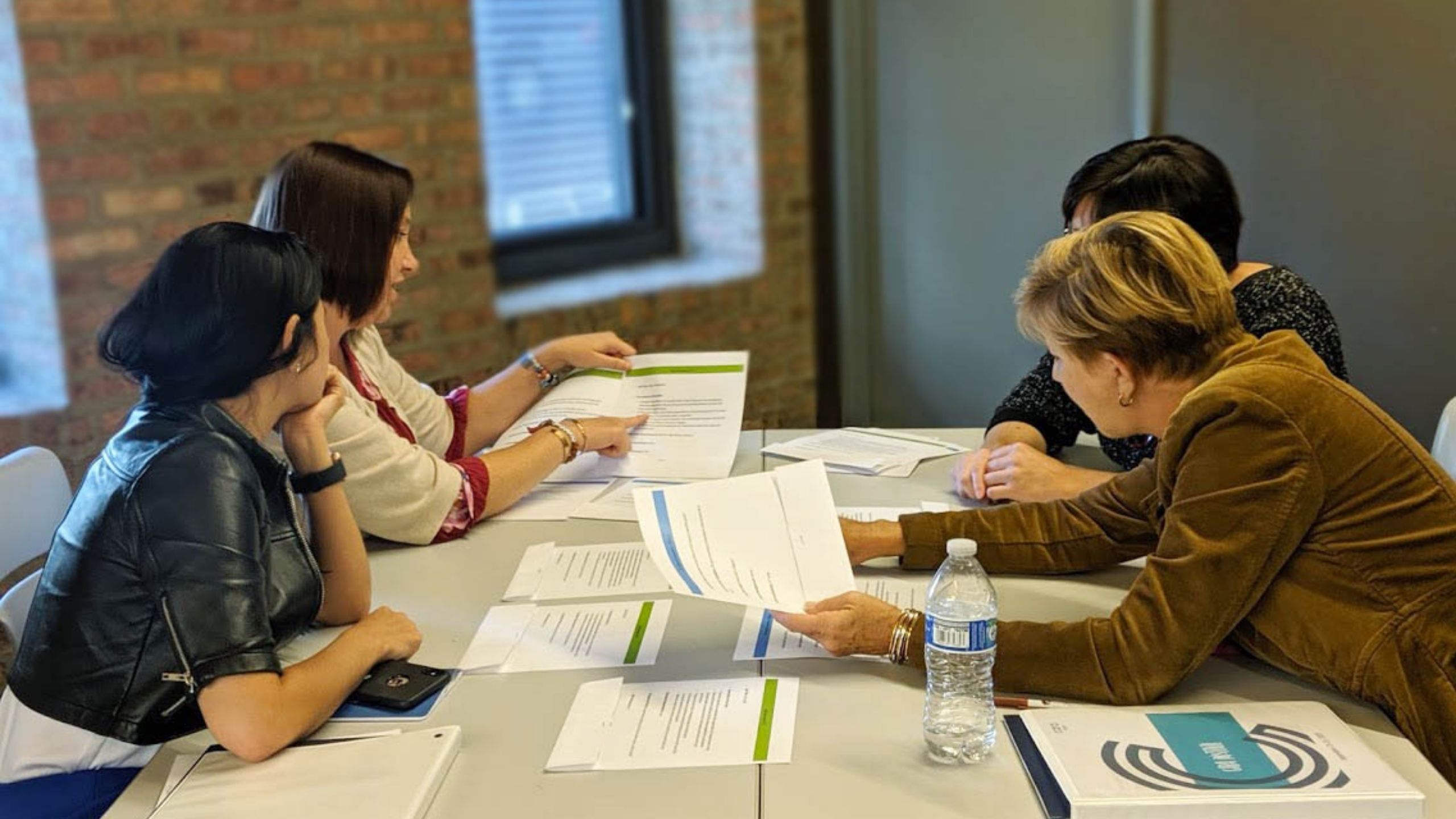Community as a Core Value
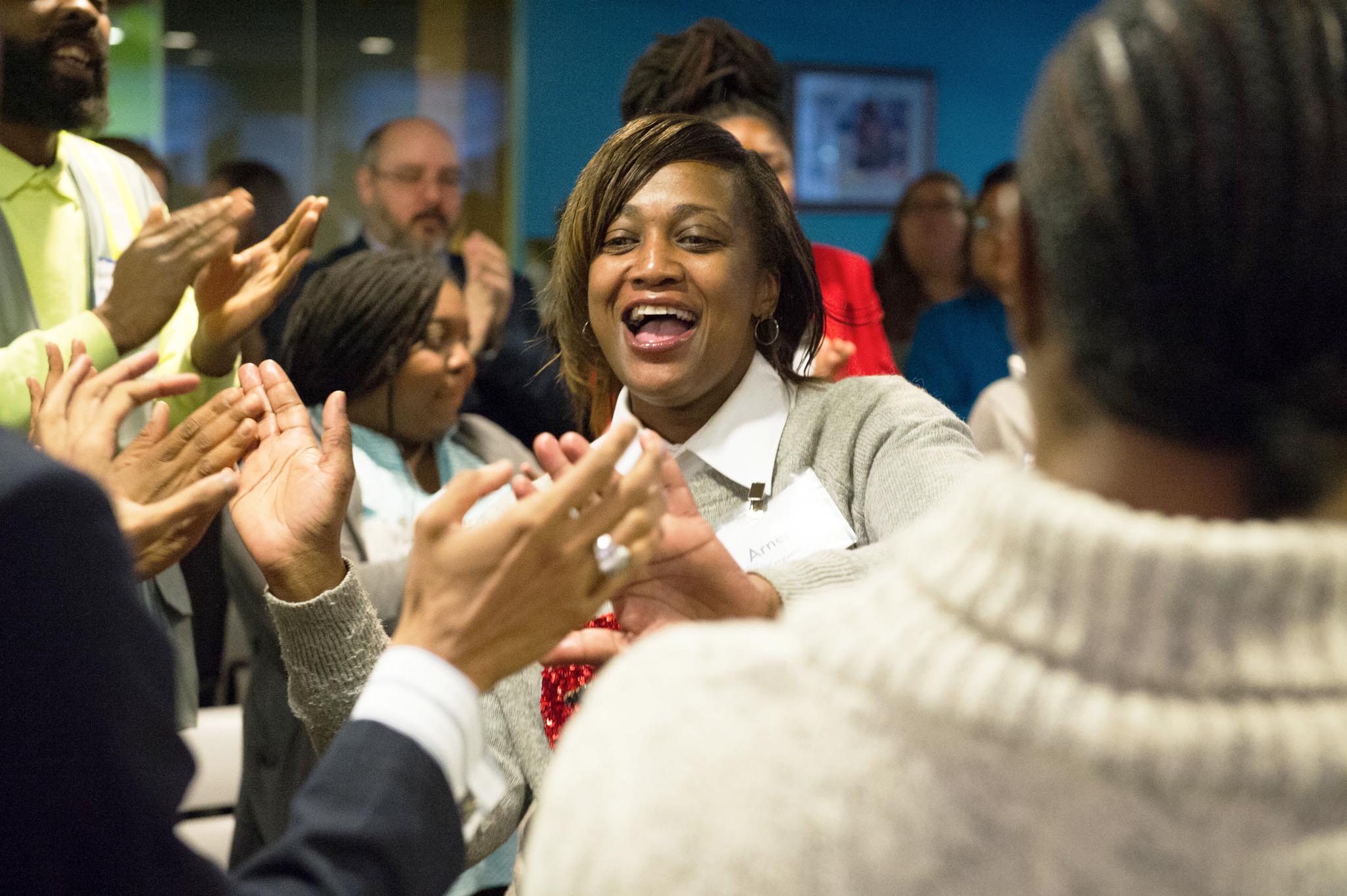
In my work at Cara, partners often express concern that our society’s system of support has failed so many of our neighbors in need. “The system is just broken,” they’ll say. If this is true, perhaps the system is broken because it’s been built to provide services – not community.
A Different Kind of System…
Billions are poured into the delivery of services, but providing discrete services alone just isn’t cutting it. Cyclical poverty is able to persist because a different kind of system is at play. Decades of research confirms that a complex, decentralized system of economic and social factors is what sustains poverty. Since this is the case, we need a collaborative solution to solve a systemic problem – one that stitches together a comprehensive ecosystem of intentional support, addressing both the symptoms and the fundamental causes of poverty in all its manifestations. On both a system-wide and an individual level, we believe the core of that solution is community.
Let’s narrow our scope a bit to provide a little more focus on how this manifests in our work. A person experiencing poverty who’s welcomed into the Cara community might present a number of issues that contribute to their present situation. Across the board underemployment is chief among them, but other factors include education, health, criminal record, housing, childcare, and food insecurity. It’s never been about some inherent laziness or neediness. We reject this narrative as a way that some incorrectly use to explain away why people aren’t successful in navigating the complex system of support.
More Than a Partnership
From employers to social service providers, Cara views its partners as extensions of our community, not tangential to it. When someone is brought into Cara, they don’t just gain peer connections with fellow participants and staff, they gain access to this extended network of partners. Our focus on socio-emotional skills is there to build skills in navigating that network to maximize the results they want for the hard work they put into crafting a career.
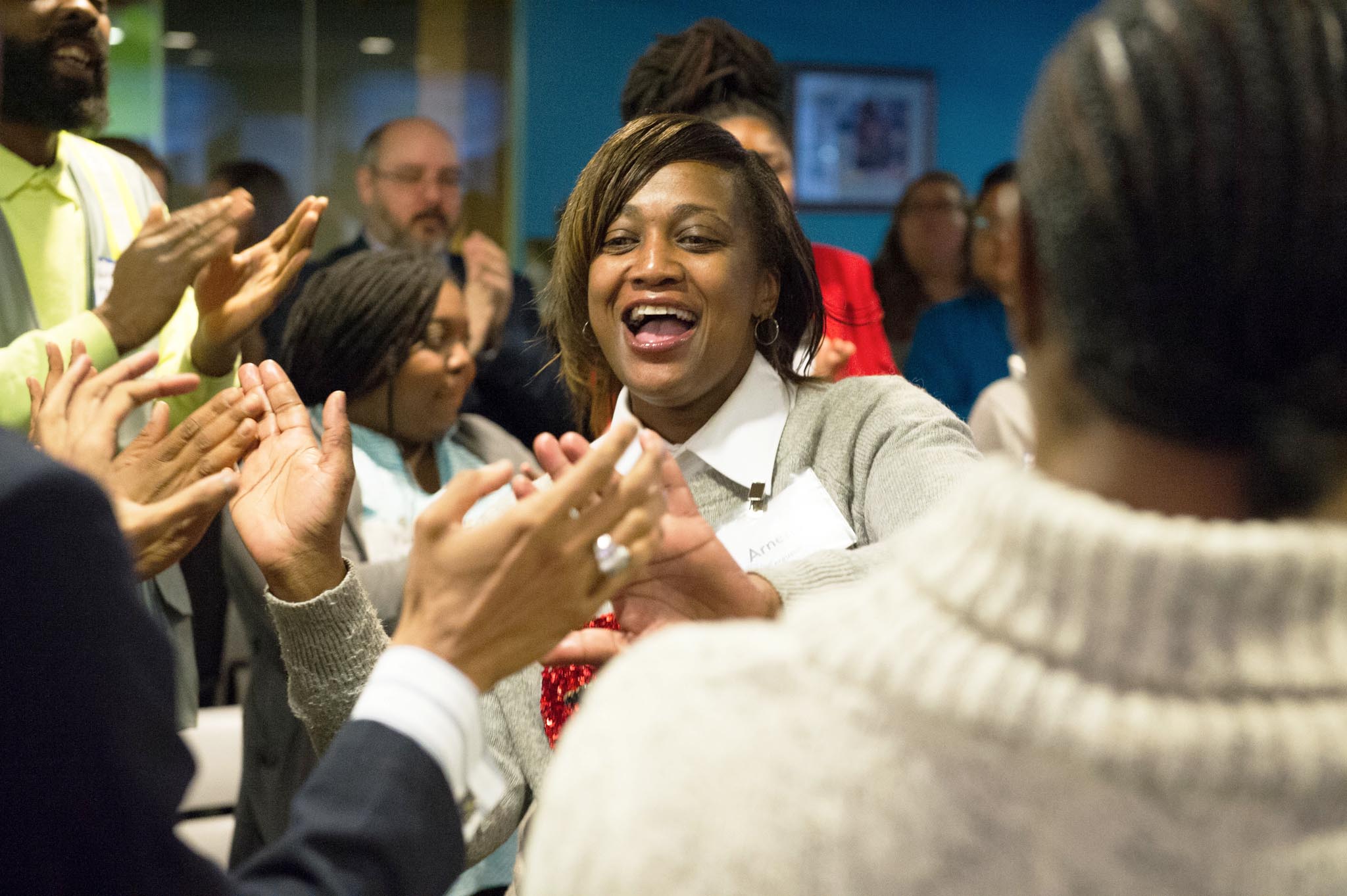
Within this network, Cara’s responsibility is to connect people to the right opportunities and services at the right times. Participants reflect back to us that they were aware of many services out there but had previously lacked a guide who could help them access and make the most of these services in the context of their focus on getting back to work and sustaining it.
The key to managing your utilization of services and opportunities is approaching them at the right time and in the right sequence. That is, the right time and the right sequence for your unique situation. “Does it make more sense for me to pursue that industry certification course right now or should I be working in a related position first?” “Does my housing crisis need to be stabilized before I go for a promotion?” “My regular clinic closed. If I run out of my meds, will I end up losing my job?” There are no straightforward answers to these questions. The answers need to be workshopped with others using context and logic. Sitting together and strategizing with collaborative partners is a major benefit of any community.
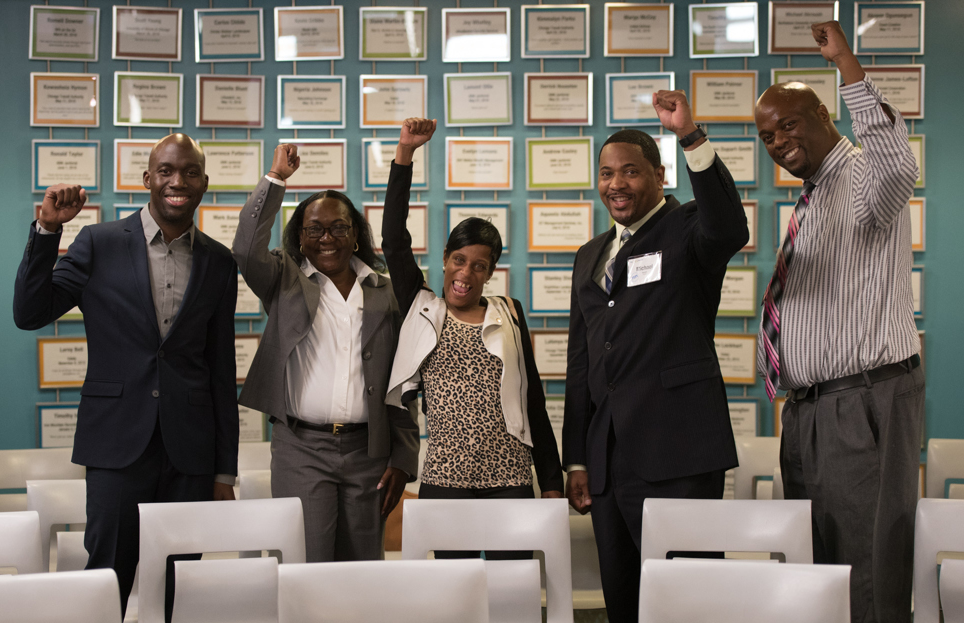
The Context of Community
Undergirding the approach to different opportunities and services, there’s a set of relationships that can be cultivated in the context of a community that isn’t sustained when it’s just about the A to B provision of services. When you meet someone and they agree to give you something in exchange for something else, it’s a transaction. When you go in with the intent of beginning a relationship, your mindset from the beginning is oriented to growing a partnership that can be increasingly and mutually beneficial.
Business 101, right?
Well, cultivating sustained partnerships might not be the norm when power dynamics are at play, if you’ve been excluded from the mainstream economy, or if you’ve never had a mentor to model this kind of strategy.
Going into university, I, for one, thought I was just there to learn and get good grades, I was clueless as to why people joined student groups or fraternities and sororities, and I certainly had no sense of how to identify or leverage networking opportunities. It’s in instances of directly reversing these dynamics that I see the concept of community at Cara really getting at the core of brick-by-brick social change. While supportive services absolutely address symptoms of poverty, a community of support allows us all to engage together in sustainably confronting its root elements.
Bob White is the Chief Program Officer of Cara. A graduate of the University of Michigan, Bob served as the owner-operator of an automotive aftermarket business before entering the non-profit world.

